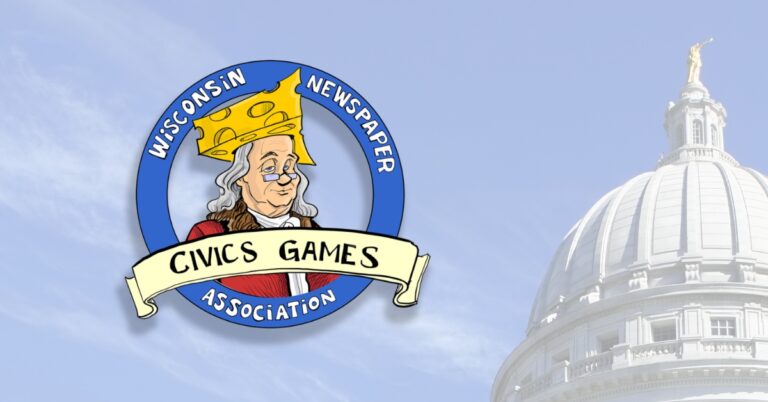The Capitol Report, produced by WisPolitics.com — a nonpartisan, Madison-based news service that specializes in coverage of government and politics — provides a weekly analysis of issues being debated in Wisconsin state government. It is underwritten by the WNA and produced exclusively for its members. WisPolitics.com President Jeff Mayers is a former editor and reporter for the Associated Press and a former political writer for the Wisconsin State Journal.
The action by the new liberal majority on the Wisconsin Supreme Court was expected.
But that didn’t diminish the impact of a late December 4-3 decision that GOP maps are unconstitutional.
The likely result, barring U.S. Supreme Court intervention: new legislative lines for the 2024 elections.
The ruling wasn’t a complete victory for the Democratic plaintiffs. They had asked the high court to order all 33 seats in the state Senate to be on the ballot in 2024, arguing it would be inappropriate to allow members elected in 2022 under unconstitutional lines to continue representing those seats.
Republicans now have a 22-11 supermajority in the Senate to go along with the 64-34 edge they have in the Assembly. Having all 33 Senate seats on the ballot next fall would’ve created an opportunity to significantly swing that chamber’s balance. But the court rejected the request as “drastic.”
Experts caution that in a state like Wisconsin, where Democrats are grouped tightly in urbanized areas, new legislative lines likely won’t mean the Legislature, long ruled by Republicans, will suddenly flip to Democrats. But they say it could mean tighter margins in the Assembly and Senate and more swing seats.
The ruling urges lawmakers to take first crack at drawing new lines. But the liberal majority said it will at the same time begin the process of selecting a new map on its own in case the GOP-controlled Legislature and Democratic Gov. Tony Evers again fail to agree on a new map.
The court also signaled it will consider the partisan impact of the new map it might select.
“Unlike the legislative and executive branches, which are political by nature, this court must remain politically neutral,” Justice Jill Karofsky wrote for the liberal majority. “We do not have free license to enact maps that privilege one political party over another.”
Deadlines loom:
–a Jan. 12 deadline for the parties to submit new maps.
–a Feb. 1 written report from two experts evaluating the submitted maps. Bernard Grofman and Jonathan Cervas were named to serve as the court’s consultants. Grofman is a political science professor at the University of California-Irvine, who is an expert on redistricting and served as a special master on several map re-drawings. Cervas is a postdoctoral fellow at the Institute for Politics and Strategy at Carnegie Mellon University. The New York Times called him one of the nation’s most influential political mapmakers.
–and new maps by March 15. The Wisconsin Elections Commission has said new maps must be in place by March 15.
Republicans have been bracing themselves for the court to order new maps since liberal Janet Protasiewicz was elected this spring after a campaign in which he knocked the current lines as “rigged” in favor of the GOP. Assembly Speaker Robin Vos, R-Rochester, raised the prospect of impeaching Protasiewicz if she heard the case, though he later backed down.
The case has been highly charged politically, with conservative Justice Rebecca Bradley ripping her four liberal colleagues for their ruling. She wrote the outcome was preordained after Protasiewicz won this spring.
“These handmaidens of the Democratic Party trample the rule of law, dishonor the institution of the judiciary, and undermine democracy,” she wrote.
Dan Lenz, an attorney on the legal team for the Democratic plaintiffs, hailed the ruling as a “victory for a representative democracy in the state of Wisconsin.”
“For too long, right wing interests have rigged the rules without any consequences,” he said.
Vos knocked the ruling in a post on X and vowed the U.S. Supreme Court “will have the last word.” Republicans asked Protasiewicz to recuse herself, but she declined. Along with calling the current lines “rigged,” Protasiewicz received nearly $10 million from the state Democratic Party during her spring campaign. Some Republicans have argued those donations eclipse what happened in a West Virginia case nearly two decades ago that resulted in a 2009 U.S. Supreme Court ruling that a state justice shouldn’t have heard a case involving a campaign donor.
WisPolitics tracked more than $56 million in spending in this spring’s state Supreme Court race, more than triple the previous national record.
Senate Majority Leader Devin LeMahieu, R-Oostburg, said “Justice should not be for sale in Wisconsin” and Protasiewicz should’ve recused herself.
Republicans have said they would consider asking the U.S. Supreme Court to step in.
Vos wrote in a text message to WisPolitics that Republicans will consult with their attorneys to figure out their next steps.
“The case was pre-decided before it was even brought,” Vos wrote, calling it a “sad day.”
The arguments the justices heard didn’t focus on the partisan balance of the maps, but on whether the continuous territory in numerous districts violated the state Constitution. The majority found those municipal islands violate the requirement that districts be contiguous. Karofsky noted in her majority opinion at least 50 Assembly districts and 20 Senate seats have such detached parts.
“We hold that the contiguity requirements in Article IV, Sections 4 and 5 mean what they say: Wisconsin’s state legislative districts must be composed of physically adjoining territory,” Karofsky wrote.
For more go to www.wispolitics.com
The Capitol Report is written by editorial staff at WisPolitics.com, a nonpartisan, Madison-based news service that specializes in coverage of government and politics and is distributed for
publication by members of the Wisconsin Newspaper Association.
Copyright © WisPolitics.com



